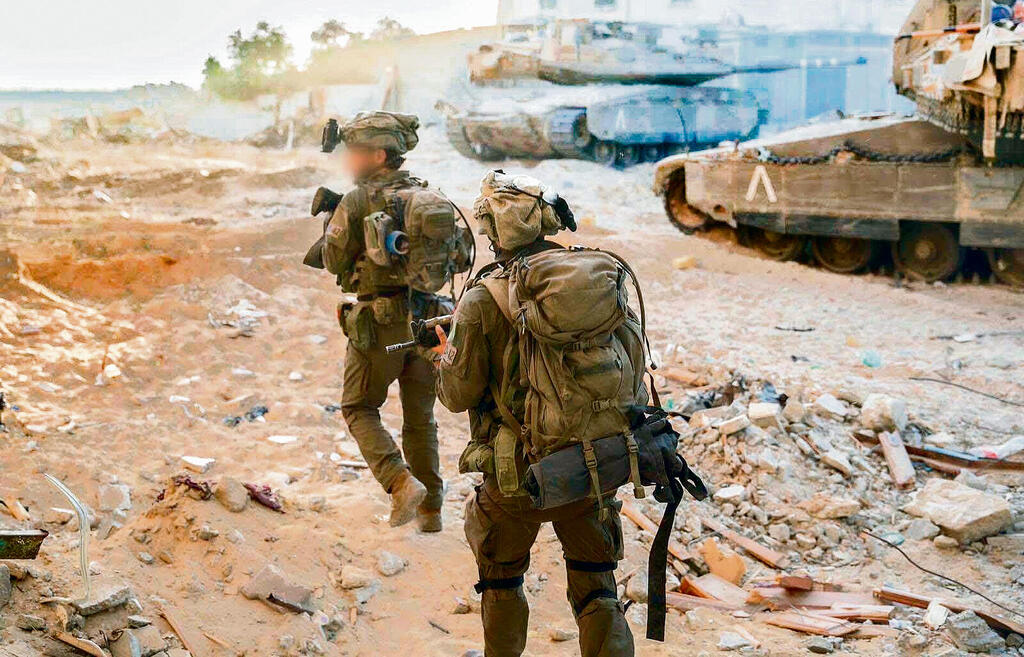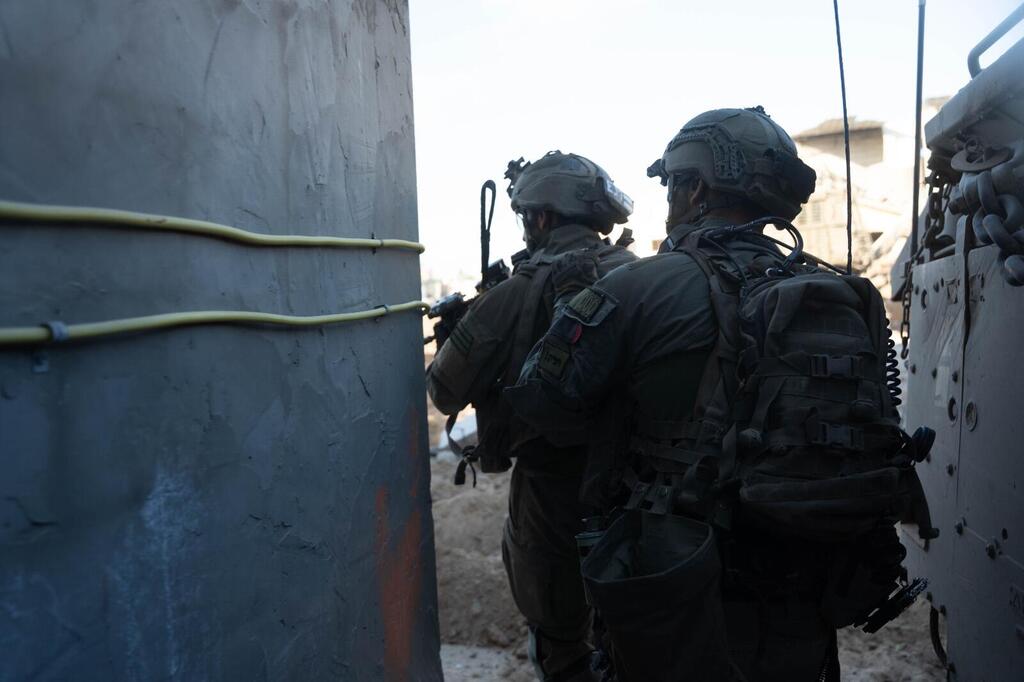Getting your Trinity Audio player ready...
Amid fierce fighting in Rafah, the IDF continues its battle against Hamas' Rafah Battalion, which IDF Spokesperson Rear Admiral Daniel Hagari claimed Saturday night was "very close to dismantling."
The primary operations in Rafah are being conducted by the 162nd Division, alongside the Shin Bet, the Air Force and additional forces such as the 99th Division. Since the onset of the operation, which began with the takeover of the Rafah border crossing, brigade combat teams have been deployed to various sectors and have started capturing the Philadelphi Corridor, which stretches the Gaza-Egypt border, heading north. In some areas, forces have moved into eastern Rafah, although they have not yet entered the city's core.
IDF forces operating in Rafah
(Video: IDF Spokesperson's Unit)
Currently, the 401st Brigade is operating in the Tel al-Sultan sector, Givati and Nahal Brigade combat teams are active in the Shabora neighborhood and the 12th Brigade is positioned further back in the Dahaniya area.
After securing operational control of the Philadelphi Corridor, forces began locating underground underground pathways and tunnels used by Hamas for smuggling weapons and hiding its operatives, some of which cross into Egypt. According to IDF data, approximately 500 terrorists have been eliminated in Rafah, and around 100 tunnel shafts have been discovered.
Hamas' 'Explosives Battalion'
The issue of explosives within Hamas' Rafah Battalions is not new to the IDF. Before forces entered the sector, commanders prepared the maneuvering units for the reality that this Hamas battalion specializes in various types of explosives. Hamas terrorists in Rafah are adept at booby-trapping buildings, attaching explosives to IDF vehicles and burying bombs in the ground to be detonated remotely from observation posts.
Capturing the Philadelphi Corridor has effectively severed Hamas' lifeline, significantly hampering the organization's ability to rearm itself during the fighting. Over time, Israeli forces have achieved operational control in different neighborhoods. Based on the stabilization of attack lines, the forces conduct raids periodically, guided by IDF and Shin Bet intelligence. So far, numerous weapons have been found, including AK-47 rifles, various powerful explosives and dozens of rockets and launchers.
The long wait for the green light from the Israeli leadership to enter Rafah allowed Hamas terrorists to prepare for the arrival of the IDF, and they are now trying to harass the forces by any means possible. They are using tunnel shafts to emerge at specific points and surprise the troops with anti-tank fire or by attaching explosives to military vehicles. Unfortunately, this tactic occasionally results in heavy casualties for the IDF.
Southern Command has identified this pattern of operation, and, in coordination with aerial forces, is providing as much protective cover as possible, warning the troops about terrorists emerging from tunnel shafts.
Just last week, the IDF released footage of a terrorist emerging from a tunnel shaft holding a shoulder-mounted missile launcher near an IDF vehicle. He was spotted from the air and subsequently eliminated. The forces are discovering a substantial amount of weaponry hidden in various locations, often in seemingly civilian sites like homes and schools. Additionally, the troops have encountered instances where Hamas terrorists fired from tents, disguising themselves as displaced Palestinian civilians.
Southern Command chief Major General Yaron Finkelman held a situational assessment in Rafah on Sunday along with 162nd Division Commander Brigadier General Itzik Cohen, 410st Brigade Commander Colonel Benny Aharon and others. "We are here in Tel al-Sultan, Rafah, after a painful incident yesterday," said Finkelman, referring to an attack on an IDF Namer APC which resulted in the death of eight Israeli troops.
IDF operates in Dei al-Balah; IDF eliminates terrorist emerging from tunnel shaft holding shoulder-mounted missile launcher near IDF vehicle
(Video: IDF Spokesperson's Unit)
"We lost soldiers and commanders during the attack. These are our finest, and our imperative is to keep moving forward, and you are doing just that. You are striking the Rafah Brigade, and we will act and continue until we decisively defeat them. We must continue our offensive toward our objectives, which are the defeat of the Rafah Brigade and the destruction of all enemy infrastructure in this area."
Concerns over delays in political decisions
Currently, IDF forces are consolidating control over the Philadelphi Corridor to prevent Hamas terrorists from reclaiming and utilizing it. According to assessments, the operation in Rafah and the dismantling of Hamas battalions in the area are expected to conclude in the coming weeks.
The IDF is deliberately refraining from entering the heart of Rafah, focusing its operations primarily in the city's western sector. Only in specific areas, such as the Shabora neighborhood, has the IDF advanced eastward. This restraint is driven largely by humanitarian considerations, as the central part of Rafah is densely populated. Additionally, global scrutiny of the IDF's actions is particularly intense during this critical period, with significant decisions pending from international courts in The Hague.
The bulk of the work will occur after the IDF completes the dismantling of Hamas battalions. The IDF is currently trying to establish a mechanism to keep the Philadelphi Corridor free of weapons and maintain control until political leaders decide on the next steps. Security officials are concerned that if the dismantling of the battalions is completed without a decision on maintaining control of the route, the IDF could find itself mired in prolonged guerrilla warfare, which could be costly.
The conclusion of the operation in Rafah could signal the beginning of possible action against Hezbollah on the northern front. Throughout recent months, the IDF has rotated units for rest, such as the Commando Brigade, which recently took a break following its activities in Rafah. If the operation in Rafah concludes within two weeks, it will present a significant dilemma for political leaders.
Assuming no deal is reached for the release of hostages, the IDF may have dismantled the Hamas battalions in Rafah, but the hostages remain in Gaza. Political leaders will need to decide on the next steps and whether the north will become the new focal point of war.








